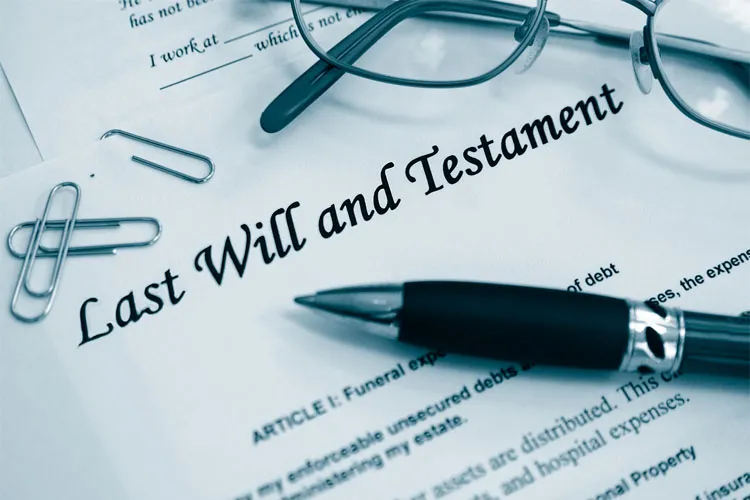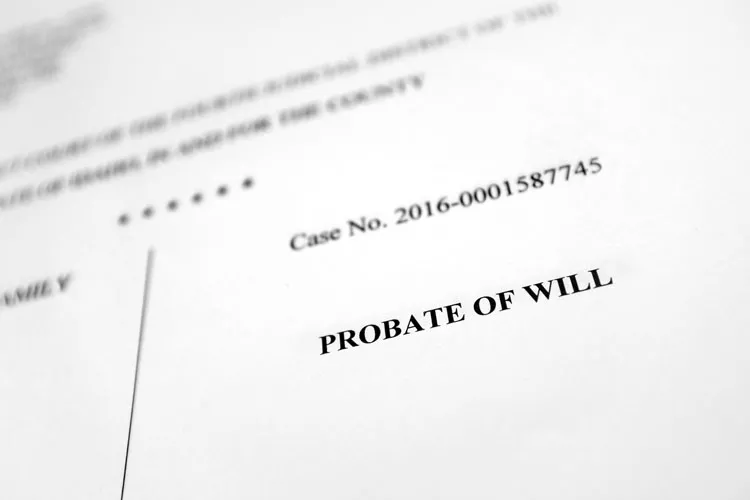
If you were named executor in someone's will, or the court appointed you to act as executor of an estate, you may be uncertain how you should proceed and have some question that only a probate lawyer may be able to answer, particularly if the estate will be passing through probate court. This is understandable, as probate can be a complicated, lengthy, and stressful process. One of the first pieces of advice that you will likely receive is to find a good probate attorney, if you do not already have one. While the executor of an estate has a responsibility to oversee the distribution of the estate's assets to its beneficiaries, an executor does not have to go through this alone.
Hiring a probate attorney can be beneficial by giving you support and guidance during this difficult time. However, if you are unfamiliar with probate, you might find yourself wondering what probate is. What does a probate attorney do? How will you know if you should consider consulting an attorney? To help you during this difficult time, here is a look at answers to a few of the most common questions we receive about hiring a probate attorney.
What Is Probate?
The first question people often have when handling a loved one's estate is "what is probate?" Essentially, probate is a legal process that takes place after a person's death to oversee the distribution of their assets. This process ensures that an individual's final debts are paid and that their assets are fairly distributed. While estate laws can vary from state to state, probate generally involves paperwork and court appearances. Any court fees or lawyer's fees accrued during the probate process are paid by the estate before its remaining assets are distributed to beneficiaries.
If a will exists, the probate process includes property distribution according to the directions in the will. During court proceedings, a probate judge will ensure that the will is authentic, and they will make sure that the directions within it are carried out properly. Probate becomes more complicated if no will exists. In this case, the probate judge ensures that the assets within the estate are distributed properly. Depending on the complexity of the estate, the probate process can become overwhelming, which is why many executors choose to hire a probate lawyer.
What Is a Probate Attorney?
You may next find yourself wondering what a probate attorney is, and how they differ from other types of lawyers. A probate attorney, also known as an estate attorney, is a state-licensed attorney who helps executors and beneficiaries manage the probate process. Many probate attorneys also handle the estate planning process. Thus, they help individuals draft wills, establish living trusts, and serve as an executor of an individual's estate. Estate attorneys can be indispensable in helping families navigate the complex probate process, particularly in situations where no will exists, or when disputes arise amongst beneficiaries.
What Does a Probate Attorney Do?
So what exactly does a probate attorney do? A probate attorney's primary job is to advise and assist the executor of the estate throughout the probate process. Not only do they act as a guide for the executor, but they can also handle much of the probate administration process as well. A few common tasks a probate attorney may handle during the probate process include:
- Filing the Petition for Probate
- Appearing in probate court
- Helping to open an estate bank account
- Handling creditor claims
- Locating all of the deceased person's assets
- Obtaining appraisals for all of the estate's assets and real estate
- Preparing and filing all documents needed by the court
- Managing the estate's finances (Including ensuring that all of the deceased's final bills and debts are paid.)
- Managing estate taxes
- Overseeing the sale of any estate property
- Settling disputes between beneficiaries
- Distributing the estate's assets amongst beneficiaries once the probate process is complete
- Closing the estate.
Ultimately, a probate attorney's goal is to make things as easy as possible for the executor. Having a great deal of experience handling estates and dealing with the probate process, estate attorneys can help to ensure that your loved one's final affairs are handled appropriately.
When Should You Consider Hiring a Probate Attorney?

As you can see, a probate attorney can be invaluable in helping to guide you through the often-confusing probate process. Professionals often recommend that an executor at least consults a probate attorney to provide advice during the probate process. However, if the estate is small, you may find yourself wondering if you really need to hire a probate lawyer. While most executors can benefit from working with an attorney, here are a few indicators that you need the help of an experienced probate attorney.
Family Members Aren't Getting Along
While it is not common for people to contest wills, if family members are in dispute and someone is talking about suing, you should talk to an attorney as soon as possible. Probate lawsuits can tear families apart. However, an experienced probate attorney may be able to help you avoid a court battle.
The Majority of the Deceased Person's Assets Must Pass Through Probate
In some situations, certain assets may be able to be transferred to beneficiaries without probate court. For instance, assets held in joint tenancy, survivorship community property, or a living trust can bypass the probate process. If most of a person's assets will bypass probate, the probate process may be fairly simple. However, if the majority of a person's assets will need to go through probate, this complicates matters, and it could be helpful to consult an attorney.
There Are Insufficient Funds to Pay Debts
If a preliminary assessment of the estate leads you to believe that there aren't enough assets in the estate to pay debts and taxes, you will need to contact an attorney before you pay any bills. State law gives priority to certain creditors, and a probate attorney can help you to determine which debts to pay.
You Are Feeling Overwhelmed
Unless you have a lot of spare time on your hands, you may find yourself feeling overwhelmed trying to handle your loved one's estate in addition to your regular responsibilities. Hiring an attorney may be critical in helping you to take care of everything in a timely manner.
Learn More About Working With a Probate Attorney
Even if an estate seems simple, consulting an attorney ensures that the probate process goes quickly and smoothly. Having an experienced attorney to guide you through this difficult time can remove a burden from your shoulders, and give you peace of mind knowing that the probate process is being handled properly by a seasoned professional.
Feel free to contact us to learn more about probate law as well as to find out how we can help to support you during this difficult time. Working with a probate attorney can prove to be indispensable in ensuring that your loved one's estate is handled properly.
For more information please request a copy of our Legal Services Schedule (PDF format).
![]()